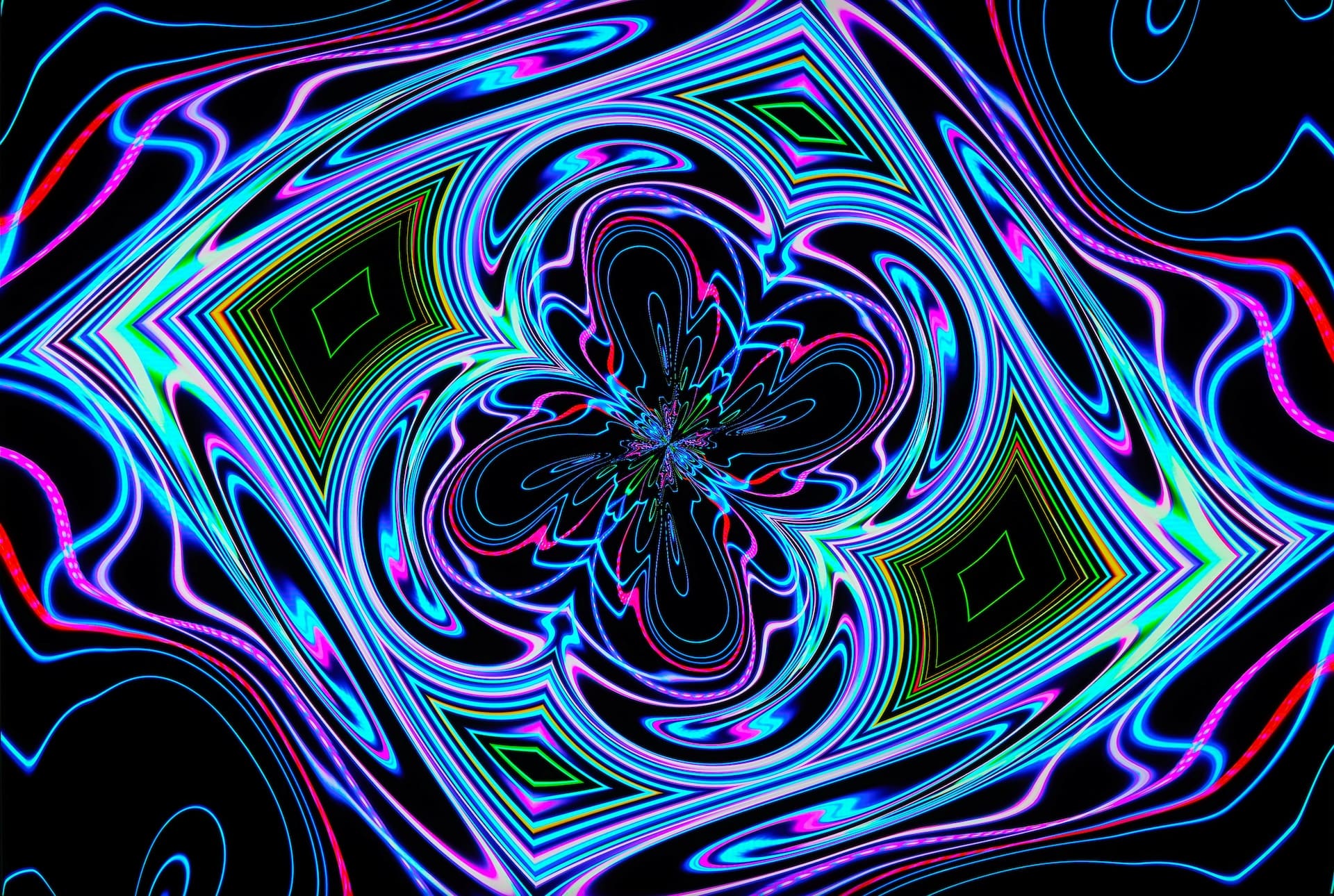Have you ever wondered about the deep connection between science and spirituality? It’s an intriguing topic that has captivated the minds of philosophers, scientists, and spiritual seekers alike. Over the years, there has been a growing interest in exploring the links between quantum physics and consciousness, revealing fascinating insights into the nature of reality and our place in the universe.
Introduction
What is science and spirituality?
Science is a systematic approach to understanding the natural world through observation, experimentation, and logical reasoning. It seeks to unravel the mysteries of the physical universe and uncover the laws that govern its functioning.
Spirituality, on the other hand, delves into the realm of the non-physical, exploring questions of meaning, purpose, and transcendence. It encompasses various religious and philosophical traditions that seek to understand the nature of consciousness, existence, and the ultimate reality.
In recent years, there has been a convergence of these seemingly distinct domains, as scientists and spiritual seekers begin to recognize the profound interconnectedness between them.
The growing interest in the connection between quantum physics and consciousness
Quantum physics, which explores the fascinating behavior of matter and energy at the tiniest levels, has truly revolutionized our comprehension of the physical world. It has introduced us to a realm of reality that defies our common-sense notions, where particles can exist in multiple states simultaneously and communicate instantaneously over vast distances.
Concurrently, the exploration of consciousness has been gaining momentum, with scientists and researchers delving into the mysteries of subjective experience and the nature of awareness. This has led to a deepening curiosity about the relationship between consciousness and the fundamental principles of quantum physics.

Understanding Quantum Physics
Key concepts of quantum physics
Quantum physics is a complex field, but a few key concepts are essential to grasp its connection with consciousness. At the heart of quantum theory lies the wave-particle duality, which suggests that particles can exhibit both wave-like and particle-like behavior. The uncertainty principle tells us that it’s impossible to know both the exact position and momentum of a particle at the same time with complete certainty. This means that there will always be some level of uncertainty or limitation in our knowledge of these properties. It’s like trying to pin down the exact location and speed of a moving object simultaneously.
The more accurately we try to measure one, the less accurately we can determine the other. So, this principle reminds us that there are inherent limits to what we can know about the microscopic world and that uncertainty is an essential part of quantum physics.
The mysterious nature of quantum particles
Quantum particles, such as electrons and photons, behave in puzzling ways. They can be in multiple places at once, exist in superposition states, and seemingly teleport from one location to another without traversing the space in between. These phenomena challenge our classical understanding of reality and open up new avenues for exploration.
The Role of Observation in quantum experiments
One of the most intriguing aspects of quantum physics is the role of observation in determining the behavior of particles. The act of measurement or observation collapses the wave function, causing a particle to manifest in a specific state. This phenomenon, known as the observer effect, raises profound questions about the relationship between consciousness and physical reality.
Exploring Consciousness
Defining Consciousness and its significance
Consciousness is the state of being aware of one’s own existence, sensations, thoughts, and surroundings. It is an essential aspect of human experience, shaping our perception, cognition, and sense of self. Despite its central role in our lives, the nature and origin of consciousness remain a subject of intense inquiry and debate.
The mind-body problem and different theories of consciousness
The mind-body problem explores the relationship between the mind (consciousness) and the body (physical brain). Various theories, such as dualism, materialism, and panpsychism, offer different perspectives on the nature of consciousness and its connection to the physical world.
Bridging the Gap: Quantum Physics and Consciousness
The parallels between quantum phenomena and consciousness
Several intriguing parallels exist between quantum phenomena and consciousness. Both exhibit non-locality, interconnectedness, and the ability to influence reality. The idea that consciousness and the quantum world share common attributes suggests a deeper connection between the two.
Quantum entanglement and interconnectedness
Quantum entanglement is a mind-boggling phenomenon that occurs when two or more particles become mysteriously connected to each other, no matter how far apart they are. It’s like they have a hidden communication channel that allows them to instantly influence each other’s properties, even if they’re on opposite sides of the universe. Changes in one entangled particle instantaneously affect the others, irrespective of the spatial separation. This interconnectedness mirrors the notion of interconnected consciousness found in various spiritual and mystical traditions.
Consciousness plays a crucial role in collapsing the wave function
As mentioned earlier, the observer effect highlights the influence of consciousness on physical systems. The act of observation collapses the wave function, transforming a range of possibilities into a single actuality. This suggests that consciousness plays an active role in shaping the reality we experience.

Quantum Physics and Mystical Experiences
The connection between quantum physics and mystical traditions
Numerous mystical traditions and ancient wisdom teachings share remarkable similarities with the principles of quantum physics. Concepts such as interconnectedness, oneness, and the role of consciousness in reality creation are prevalent in both domains. This connection offers a bridge between scientific exploration and spiritual understanding.
Shared concepts of interconnectedness and oneness
Quantum physics reveals a universe where everything is interconnected at a fundamental level. Similarly, mystical traditions emphasize the interconnectedness of all beings and the unity of existence. This shared notion invites us to reconsider our perception of separateness and embrace a holistic worldview.
How quantum principles can enhance our spiritual understanding
By incorporating quantum principles into our spiritual exploration, we can gain fresh perspectives on age-old questions. The understanding of interconnectedness, the malleability of reality, and the power of consciousness can deepen our spiritual practices and lead to personal transformation.
Consciousness and the Observer Effect
The observer effect in quantum physics
The observer effect, observed in countless quantum experiments, raises profound questions about the relationship between consciousness and the physical world. It suggests that the act of observation influences the behavior of particles and shapes the outcomes of experiments.
The Implications of consciousness influencing reality
If consciousness can affect physical systems at the quantum level, it opens up new possibilities for understanding the power of our thoughts, intentions, and beliefs. It challenges the notion of a strictly deterministic universe and invites us to explore the role of consciousness in shaping our reality.
The potential for conscious creation and manifestation
Building on the principles of quantum physics, some argue that conscious intention and belief can influence our experiences and manifest desired outcomes. This idea aligns with spiritual concepts of manifestation and the power of focused intention. By harnessing this potential, we can actively participate in creating our reality.

The Power of Intention and Belief
How Intention and belief can shape reality
Intention and belief play a crucial role in our perception and interaction with the world. The power of intention lies in our ability to focus our thoughts and energy toward a specific outcome, while belief acts as a catalyst, aligning our consciousness with the desired reality.
Scientific studies on the effects of consciousness on physical systems
Several scientific studies explore the effects of consciousness on physical systems. From the famous double-slit experiment to the research on the placebo effect, these studies offer empirical evidence supporting the notion that consciousness can influence the behavior of matter and energy.
Harnessing the power of intention for personal growth and transformation
By cultivating conscious intention and aligning our beliefs with our desires, we can tap into our innate creative potential. This process involves practices like visualization, affirmations, and meditation, which help us clarify our goals and empower us to manifest positive changes in our lives.
Quantum Healing and Mind-Body Connection
The Role of Consciousness in Healing and Well-being
The mind-body connection suggests that our mental and emotional states can influence our physical health and well-being. Quantum healing takes this concept further, proposing that consciousness can play a vital role in facilitating healing processes and promoting overall wellness.
The mind-body Connection and its Impact on Health
Numerous studies have demonstrated the link between mental states, such as stress and emotional well-being, and their effects on physical health. Quantum healing approaches aim to harness this connection by engaging the power of consciousness in the healing process.
Integrating quantum principles into healthcare practices
Quantum principles are finding their way into various healthcare practices, such as energy healing modalities and integrative medicine. By incorporating these principles, practitioners seek to address health concerns holistically and promote healing on multiple levels.
Practical Applications in Everyday Life
Applying quantum principles to personal development
Quantum principles offer valuable insights for personal growth and development. By embracing concepts like non-locality, interconnectedness, and the observer effect, we can expand our awareness, cultivate empathy, and deepen our understanding of ourselves and others.
Enhancing creativity, intuition, and problem-solving abilities
Quantum principles can stimulate our creativity, enhance our intuitive capacities, and transform the way we approach problem-solving. By tapping into the underlying interconnectedness of all things, we gain access to new perspectives and solutions.
Creating a more harmonious and interconnected world
By incorporating quantum principles into our daily lives, we can contribute to the creation of a more harmonious and interconnected world. Understanding the profound interdependence of all beings encourages compassion, empathy, and a sense of responsibility for the well-being of the planet and its inhabitants.
Ethical Considerations and Future Implications
The ethical implications of quantum technology and Consciousness
Advancements in quantum technology raise ethical considerations regarding their potential applications. From quantum computing to the exploration of consciousness, it is essential to navigate these developments with careful thought, ensuring responsible use, and minimizing potential risks.
Potential advancements in scientific research and spiritual practices
The connection between quantum physics and consciousness opens up exciting avenues for future research and exploration. The continued scientific inquiry into these fields and their convergence can deepen our understanding of the nature of reality and the human experience.
Striking a balance between scientific exploration and spiritual growth
As science and spirituality converge, it is vital to strike a balance between rigorous scientific investigation and personal spiritual growth. Embracing both perspectives allows for a holistic approach to understanding the mysteries of existence while fostering intellectual curiosity and personal transformation.
Conclusion
The exploration of the connection between quantum physics and consciousness offers a profound journey into the mysteries of science and spirituality. The parallels between quantum phenomena and consciousness reveal remarkable insights into the nature of reality and our role as conscious beings.
By embracing the principles of quantum physics and integrating them into our spiritual practices, we can uncover a deeper understanding of ourselves and the universe. This synthesis invites us to explore the power of intention, the influence of consciousness on reality, and the potential for personal and collective transformation.
As we continue to delve into the secrets of science and spirituality, we embark on a remarkable journey of self-discovery and wonder. By embracing the interconnectedness of quantum physics and consciousness, we can forge a path toward a more profound understanding of our existence and the nature of reality itself. Dive in deeper by subscribing our newsletter for relevant content.
FAQs
What does quantum physics have to do with consciousness?
The relationship between quantum physics and consciousness is a subject of ongoing exploration. Some intriguing parallels suggest that the principles of quantum physics, such as the observer effect and interconnectedness, may provide insights into the nature of consciousness and its influence on physical reality.
What is quantum physics and God theory?
Quantum physics is a branch of science that explores the behavior of particles at the smallest scales. It does not directly address the concept of God. However, some philosophical interpretations of quantum physics propose connections between quantum phenomena and spiritual or metaphysical concepts, including the existence of a higher power.
How is science connected to spirituality?
Science and spirituality can be interconnected in various ways. While science focuses on empirical observation and understanding the physical world, spirituality explores the non-physical aspects of human existence. The convergence of science and spirituality allows for a more holistic understanding of reality, where both perspectives can contribute to our exploration of the mysteries of existence.
Is quantum physics mysticism?
Quantum physics itself is a scientific discipline grounded in empirical observation and mathematical modeling. However, due to its counterintuitive and mysterious nature, some people draw mystical or metaphysical interpretations from its principles. It is important to distinguish between the scientific study of quantum physics and mystical interpretations derived from it.
What is quantum entanglement between humans?
Quantum entanglement is a phenomenon observed between particles, not between humans. It refers to the entwined states of two or more particles, where their properties become correlated, regardless of the distance between them. The concept of quantum entanglement does not extend to entanglement between individual human beings.
Does consciousness come from quantum?
The origin of consciousness is a subject of ongoing scientific and philosophical inquiry. While some propose that consciousness may emerge from the complex interactions of neural processes in the brain, the connection between consciousness and quantum physics remains speculative and is yet to be fully understood or substantiated by scientific evidence.
What is quantum spirituality?
Quantum spirituality is a term used to describe the exploration of spiritual or metaphysical concepts through the lens of quantum physics. It often involves drawing parallels between quantum phenomena, such as non-locality and interconnectedness, and spiritual principles to provide a deeper understanding of reality and human consciousness.
What religion believes God is energy?
The concept of God being energy or having an energetic essence is present in various spiritual and philosophical traditions. While no specific religion exclusively believes that God is energy, the idea aligns with pantheistic or panentheistic perspectives, where God is seen as immanent in all things and the underlying energy of the universe.
What is quantum physics and Buddhism?
Quantum physics and Buddhism are distinct domains of knowledge. Quantum physics is a scientific discipline concerned with the behavior of particles and the fundamental laws governing the physical world. Buddhism, on the other hand, is a religion and philosophy that emphasizes the nature of suffering, the pursuit of enlightenment, and ethical living. There may be philosophical intersections between quantum physics and certain Buddhist concepts, such as interconnectedness.
What does quantum physics say about love?
Quantum physics, as a scientific field, does not directly address the concept of love. Love is a complex human experience that involves emotions, relationships, and subjective qualities. While love may inspire metaphors or analogies involving quantum principles, it is important to distinguish poetic or metaphorical expressions from scientific claims about love based on quantum physics.
Are the particles in my body entangled?
The particles in your body are not typically entangled with each other in a quantum sense. Quantum entanglement requires specific conditions and interactions between particles. While the atoms and particles in your body follow the laws of quantum physics, they generally do not exhibit the entanglement observed in controlled laboratory settings.
What is quantum enlightenment?
Quantum enlightenment is a term that combines elements of quantum physics and spiritual awakening. It suggests that insights from quantum physics can contribute to an expanded understanding of consciousness, reality, and the nature of existence, leading to a state of profound insight and awakening. The concept is often used metaphorically to describe a transformative shift in perspective or spiritual realization influenced by quantum principles.





















